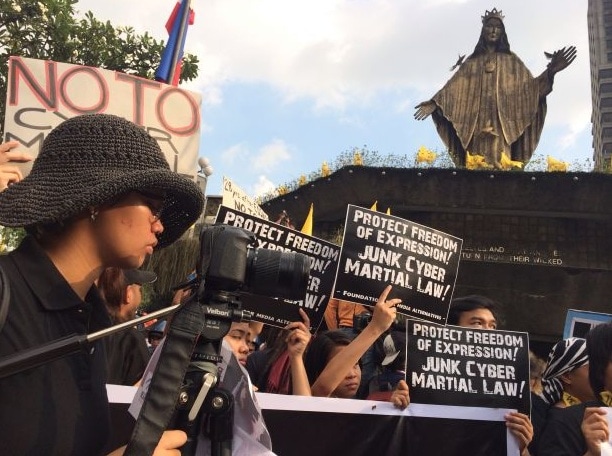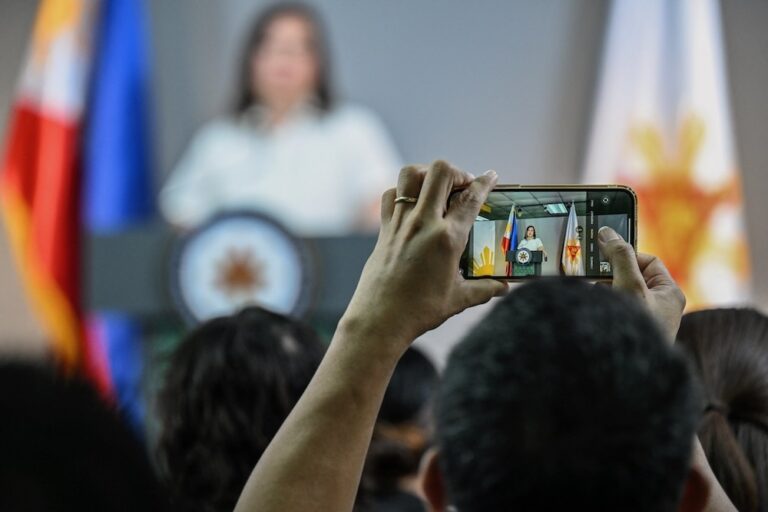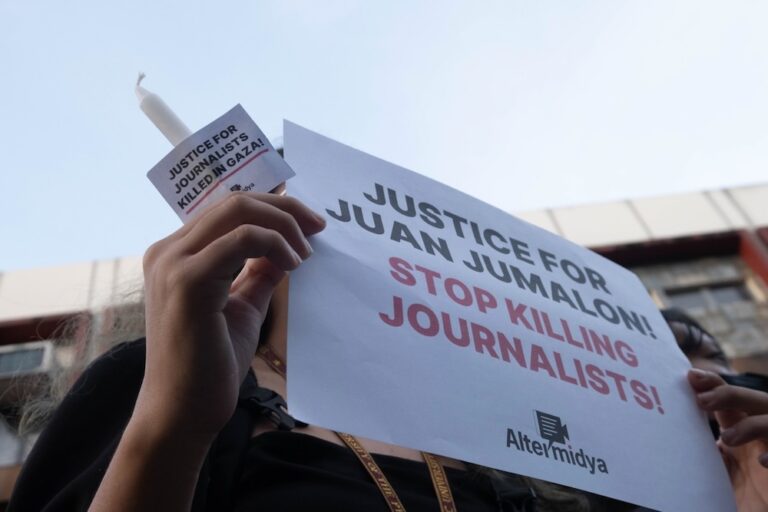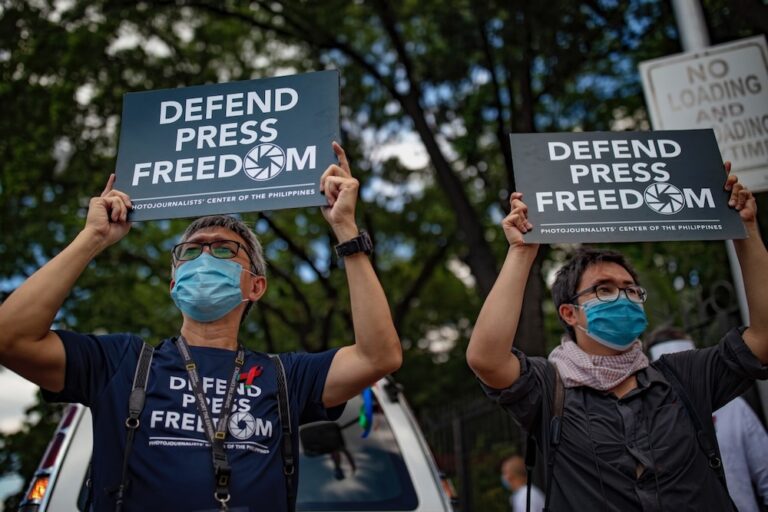The idea of press freedom and free speech requires a real understanding on the part of lawmakers that criticism of public officials and public figures is protected or privileged communication, says CMFR in response to the Philippines' deliberations on the Cybercrime Prevention Act. Criminal libel is legislation that favors the political class; which is an insidious spirit that is inimical to democracy.
UPDATE: Supreme Court upholds February ruling on online libel (22 April 2014)
By Melinda Quintos De Jesus, CMFR Executive Director
There is a lot to say about the Cybercrime Prevention Act. And a lot more will be said now that the Supreme Court has upheld some of its key provisions.
But this entry will not go into the many issues involved. I think we need also to think on the conditions that made it necessary to ask the Supreme Court for an opinion in the first place, and seek the restraining enforcement of the offending law.
The Cybercrime Prevention Act is flawed legislation in so many ways. It reflects the lazy thinking and sloppy process that the Senate and the House of Representatives pass off as law-making. If their object was to prevent crimes committed on cyber space, why write an omnibus law that includes a range of offensive conduct on the Internet, as though all these offenses were equal or of the same kind?
CMFR has catalogued the dangers incorporated into RA 10175 and has welcomed how the High Court has declared some of these unconstitutional. Lawmakers must now work to undo their mistakes. I do not think corrective revision will do the job. The law is bad. And Congress must simply repeal it.
CMFR’s advocacy for free expression and press freedom is not against legislation going after child pornography. And CMFR holds that there are certain kinds of data, specifically, information that business companies and such hold that relate to product development and different kinds of R & D.
For these however there should be separate and specifically worded laws. Those elected to write laws should see to it that they review what laws will indeed work to prevent these crimes and not try to address different issues with one law. At least when dealing with criminality.
In the crafting of the Cybercrime Prevention Act, it has been clear that elected legislators were not taking their mandated duties seriously. They passed a law, and we did not hear too many objecting to the broad sweep of this law, allowing even the troublesome insertions on libel committed online. Reportedly done at the later stage of the process, this was clearly done to favor one of their colleagues who had been upset with his critics. Alas, President Aquino shares the blame for so quickly signing all this into law. The case exemplifies one key explanation for why we have such bad government.
The Supreme Court may have upheld criminal libel, which remains in our penal code. But its resolution has actually sparked motions to decriminalize libel. The window of opportunity is open for constructing a genuine landscape to promote freedom of expression.
The idea of press freedom and free speech requires a real understanding on the part of lawmakers that criticism of public officials and public figures is protected or privileged communication. Criminal libel is legislation that favors the political class; which is an insidious spirit that is inimical to democracy.
The insertion in the law for online libel saw it as an instrument for holding back critics. They showed an abysmal ignorance of the strong constitutional protection of the speech of citizens and the press when these take on their kind. The scramble of senators to decriminalize libel now and to defend Internet freedom proves my point: lawmakers do not give the job the attention it needs; not to speak of those who just don’t have what it takes to do the job.
Criminal libel betrays the Philippine Constitution which protects freedom of expression in the most libertarian terms, echoing the American premise for the First Amendment. It recognizes that freedom of expression provides the foundation for all human rights. Indeed, how does one fight for any of these rights, without protection of free speech.
And yet, along with other governments which make no pretense about being democratic, our elected officials hold on to the archaic notion of imprisonment for those exercising such freedom. We have seen all kinds of consideration extended to those convicted of greater crimes, keeping the likes of Napoles out of regular jail; the less offensive hospital or home arrest for high officials convicted or charged with plunder?
But critical coverage of public officials and public figures? This notion is so offensive that laws have prevailed to imprison those charged or found guilty. In the eighties, my editor in Veritas NewsWeekly, Felix Bautista, would caution me about our staying around in the office on Friday afternoons. Marcos was in still in power and we were pushing the limits of government tolerance in our coverage. The custom was to serve the warrant of arrest at the later hours of the work week. We could be picked up, he said, and it would be too late to arrange for bail. We would have to spend the night or even the weekend in jail.
With criminal libel law upheld, journalists are still so threatened. We used to think that courts always favored the accused in libel cases. This is no longer true. Several of our colleagues in the provinces have gone to jail for libel, with so few of us knowing or caring.
Freedom of expression also calls for a more mature outlook on the part of the press and the public. There must be acceptance of the idea that freedom imposes its own restraints and even the most ample grant of freedom is limited by other rights.
I believe in punishing libel when it is committed: it should involve the payment of damages to the aggrieved. Owners of publications and media companies must bear their share of this burden as they must be responsible for the conduct of their media business.
We are facing both challenge and opportunity. Everyone needs to think of moving this forward. But first, Congress needs to remove the bad law from the books. Doing this, they should also seize the moment and take the time to make history and decriminalize libel.



